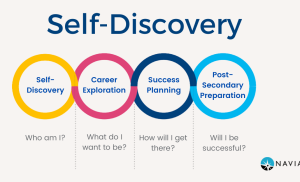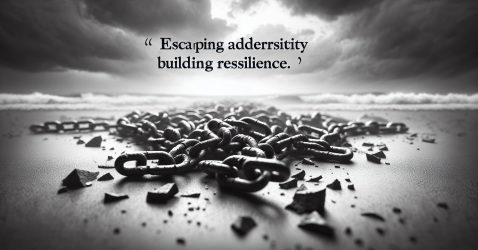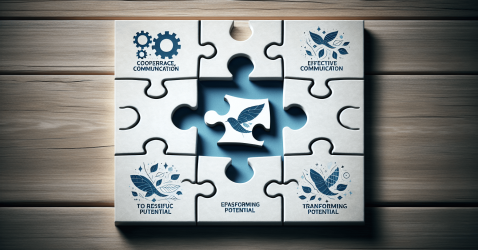Balancing Act: Mindful Parenting In A Busy World
In today’s fast-paced world, it can be challenging for parents to find a balance between their responsibilities and being present for their children. With endless to-do lists, constant distractions, and a focus on productivity, mindful parenting has become more important than ever. By embodying mindfulness, parents can create meaningful connections with their children, foster their emotional well-being, and navigate the chaotic demands of modern life, all while cherishing the joyous journey of parenting. Join us as we explore the art of mindful parenting in a busy world and discover practical tips to cultivate mindfulness in your daily interactions with your little ones.
Setting Priorities
Parenting is a journey filled with numerous responsibilities and challenges. In order to navigate this journey successfully, it is crucial to set priorities. Start by identifying the most important aspects of your child’s life. Is education a top priority for you? Or do you value their emotional well-being above all else? Understanding what matters most to you will guide your parenting decisions and actions.
At the same time, it is important to determine your own priorities as a parent. Reflect on your values, beliefs, and goals. Think about what you want to instill in your child and what kind of relationship you want to nurture with them. By clarifying your own priorities, you can align your actions and decisions with what truly matters to you.
Creating Quality Time
In today’s busy world, finding time for your child can be challenging. However, carving out dedicated time for your child is essential for building a strong and meaningful connection. Schedule regular quality time where you can engage in activities together that both of you enjoy.
During this dedicated time, make a conscious effort to minimize distractions. Put away your phone, turn off the television, and focus all your attention on your child. This undivided attention sends a powerful message to your child that they are valued and loved. Engage in conversations, play games, or engage in hobbies that both of you can enjoy together.
Practicing Mindfulness
Mindfulness is a powerful tool that can greatly enhance your parenting approach. By developing mindfulness techniques, you can bring a sense of calm and presence into your interactions with your child. Take a few moments each day to practice deep breathing exercises or meditation. These practices can help you become more attuned to your emotions and make conscious choices in your parenting.
When it comes to your parenting approach, incorporate mindfulness by being fully present and engaged in the moment. Instead of rushing through tasks or thinking about what needs to be done next, focus on the present moment with your child. Give them your full attention, listen actively, and respond with empathy and understanding. By being fully present, you can create a deeper connection with your child and respond to their needs more effectively.
Managing Technology
Technology has become an integral part of our lives, and it is important to manage its use in the context of parenting. Set clear boundaries for screen time and establish rules around technology usage. This will help create a healthy balance between technology and other activities.
As a parent, it is important to model healthy technology habits. Show your child that there are alternative activities to engage in offline. Spend quality time together without the distractions of screens. Encourage outdoor play, reading, creativity, and other activities that promote growth and development.
Fostering Emotional Connection
Building a strong emotional bond with your child is essential for their overall well-being. Make it a priority to nurture this connection by practicing active listening and empathy. When your child shares their feelings, truly listen to them without judgment or interruption. Validate their emotions and let them know that their feelings are important and valid.
Acknowledge and validate your child’s emotions, even if you don’t necessarily agree with their perspective. This creates a safe space for them to express themselves and fosters trust and openness in your relationship. By acknowledging their emotions, you are helping them develop emotional intelligence and resilience.
Promoting Independence
As your child grows, it is important to nurture their independence and autonomy. Provide opportunities for them to make decisions and take responsibility for their actions. Encourage them to think critically, problem-solve, and make their own choices within appropriate boundaries.
Support your child’s exploration and autonomy by allowing them to pursue their interests and passions. Give them the freedom to explore new hobbies, activities, and friendships. By fostering independence, you are helping your child develop essential skills and qualities that will serve them well throughout their lives.
Establishing Routines
Creating a structured daily routine can provide a sense of stability and security for your child. Establish consistent mealtimes, bedtime routines, and other activities that occur at regular intervals. This predictability helps your child feel secure and reduces anxiety and stress.
Incorporate self-care activities into your child’s routine as well. Teach them the importance of taking care of their physical and mental well-being. This could include activities such as brushing their teeth, getting enough sleep, engaging in creative outlets, and spending time in nature.
Setting Realistic Expectations
It is important to understand that every child is unique and has their own individual capabilities. Avoid comparing your child to others and setting unrealistic expectations. Instead, focus on celebrating their progress and growth, no matter how small.
Recognize and appreciate your child’s strengths and talents. Encourage them to pursue their interests and passions, and support them in their endeavors. By setting realistic expectations based on their individual abilities, you empower your child to reach their full potential without unnecessary pressure or stress.
Taking Care of Yourself
Being a parent is demanding, and it’s easy to put your own needs on the back burner. However, it is vital to prioritize self-care and self-compassion. Take the time to recharge and nurture yourself. This can include engaging in activities that bring you joy, spending time with loved ones, or simply taking a break when needed.
Seek support from your partner, family, or friends. It’s okay to ask for help and share the load of parenting responsibilities. Surround yourself with a support system that can provide guidance, understanding, and encouragement.
Additionally, find time for hobbies and personal interests. Pursuing activities that you enjoy can help you maintain a sense of identity outside of being a parent. This balance between your own needs and your role as a parent is crucial for your overall well-being.
Practicing Effective Discipline
Discipline is an integral part of parenting, but it can be challenging to find the right approach. Establish clear and consistent rules that help your child understand boundaries and expectations. Ensure that these rules are age-appropriate and reflect your family values.
Instead of focusing solely on punishments, incorporate positive reinforcement and rewards into your discipline strategy. Praise your child when they exhibit good behavior or accomplish tasks. This positive reinforcement encourages them to continue behaving positively and reinforces their self-esteem and confidence.
Effective discipline also involves improving communication with your child. Avoid harsh punishments or negative language that can damage your relationship. Instead, use calm and respectful communication to address behavior issues and help your child understand the consequences of their actions.
In conclusion, mindful parenting in a busy world requires intentionality and conscious choices. By setting priorities, creating quality time, practicing mindfulness, managing technology, fostering emotional connection, promoting independence, establishing routines, setting realistic expectations, taking care of yourself, and practicing effective discipline, you can navigate the challenges of parenting while nurturing a strong relationship with your child. Remember, being a parent is a continuous learning process, and it’s okay to make mistakes. The key is to approach parenting with love, empathy, and a willingness to grow together.

















